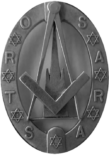Welcome to Sarastro Lodge
The home of English-speaking Craft Freemasonry in Austria
Consecrated on 15th May, 1969 by members of the Sarastro Masonic Club, Sarastro Lodge is the first, and only, entirely English-speaking Masonic Lodge in Vienna and Austria.
The intent of the Lodge is to provide a Masonic home to the English-speaking community living in and visiting Austria. As well as Austrians, interested in working Masonic ritual in English.
Sarastro Lodge is part of Regular Austrian Craft Freemasonry, under the Grand Lodge of Austria, A.F., and A.M. which is recognised by the United Grand Lodge of England.
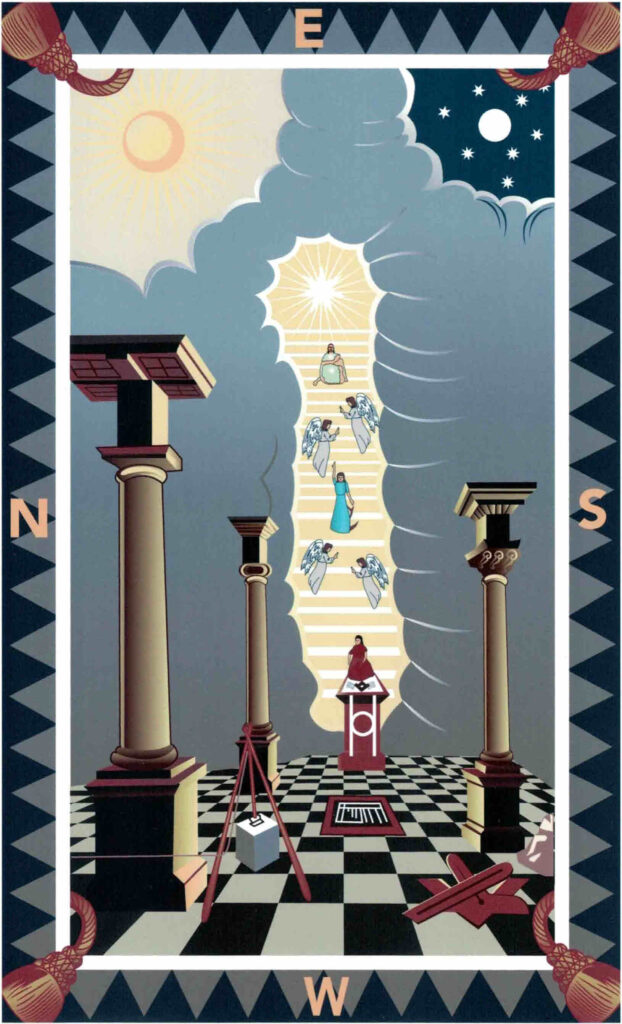

About Sarastro Lodge
Sarastro Lodge owes its inception to a small group of enthusiastic brethren of various Lodges from across the world who were based in Vienna for work during the 1950’s and 1960’s. In 1961 they formed themselves into the ‘Sarastro Masonic Club’, the name being derived from the character in Mozart’s opera, ‘Die Zauberflöte’ (‘The Magic Flute’). The Club’s membership was very international, it held lectures about Freemasonry and its ideals. Its numbers grew, and the idea of forming a new Lodge came under consideration. A petition was presented to the Grand Lodge of Austria, A.F. and A.M. to grant a warrant for a new Lodge, and, having demonstrated that there was a significant demand for non-German-speaking Freemasonry, the Sarastro Lodge was consecrated on 15th May 1969. The Lodge to this day continues to connect those in the international community to meet socially and to support charities.
Building Friendships, Shaping Lives, Supporting Communities, through Timeless Traditions
Building a caring society with

Integrity
Common foundation for

Friendship
Treats others with

Respect
Make a difference with

Charity
The World's Fraternity
Freemasonry
Freemasonry is one of the world’s oldest social and charitable organisations. Freemasonry’s roots lie in the traditions of the medieval stonemasons who built our cathedrals and castles. It is in these traditions that several of the famous elements of Freemasonry find their roots. In the medieval era, stonemasons often travelled around to find work in different locations. To demonstrate their level of qualification, they would use signs and other methods of recognition to distinguish themselves from unqualified builders.
Freemasonry uses building analogies to teach members how to lead productive lives that benefit the communities that they live in. It teaches self-knowledge through participation in a progression of ceremonies and becoming better, less selfish, and more caring human beings. In the medieval era, stonemasons wore aprons and gloves to protect themselves while working on shaping rough pieces of stone, but in today’s society Freemasons meet to build friendships and communities rather than cathedrals and castles.
There are various reasons why a person may want to join. Some join to make new friends; some join to help others and make a contribution to their local community.
For centuries, Freemasons have followed three great principles: Brotherly love, Relief and Truth.
Brotherly love
Every true Freemason will show tolerance and respect for the opinions of others and behave with kindness and understanding to his fellow creatures.
Relief
Freemasons are taught to practice charity, and to care, not only for their own, but also for the community, both by charitable giving, and by voluntary efforts and work as individuals.
Truth
Freemasons strive for truth, requiring high moral standards and aim to achieve them in their own lives.
... making a daily advancement in Masonic Knowledge
How involved is Freemasonry in politics?
Politics and Society
Every member can have his own political opinion, alliances, and even be an active politician.
Regular Freemasonry itself is a non-political organisation. The discussion of politics is therefore explicitly forbidden at the Lodge.
Freemasonry requires that each member respects the laws of the land, meaning the country in which he works and lives.
A Freemason’s duty is not in conflict with his duties as a citizen. Quite the opposite, Freemasonry encourages the fulfillment of one’s public and private obligations.
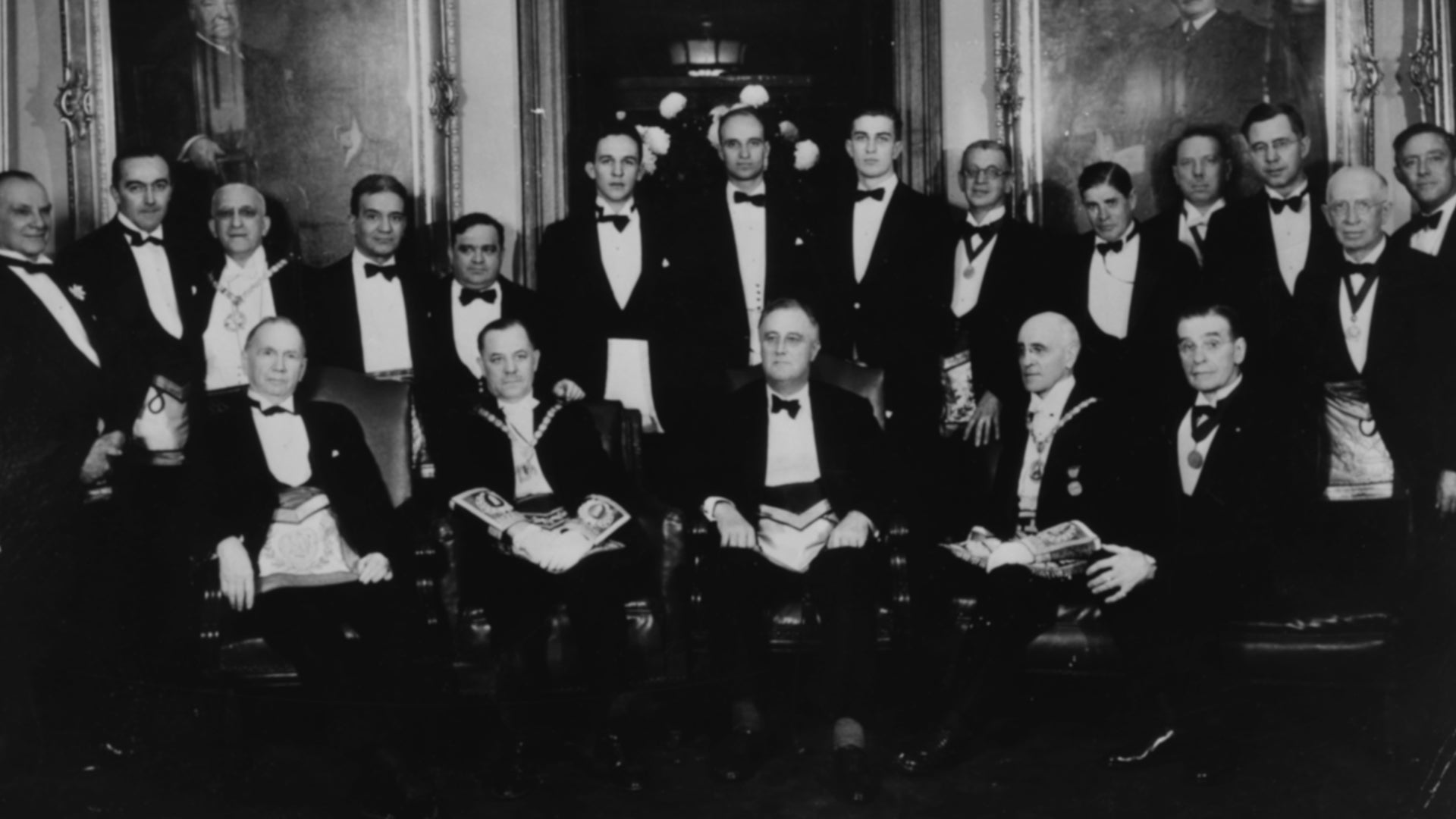
What kind of Charity?
Charity
From its earliest days, Freemasonry has been concerned with the care of orphans, the sick and the aged. This work continues today. Sarastro Lodge regularly supports a number of charities. These charities are decided upon by the Lodge members. Whilst all Freemasons are encouraged to give to charity at meetings, there is no minimum amount expected. It is only an amount which you can comfortably afford to give to help others.
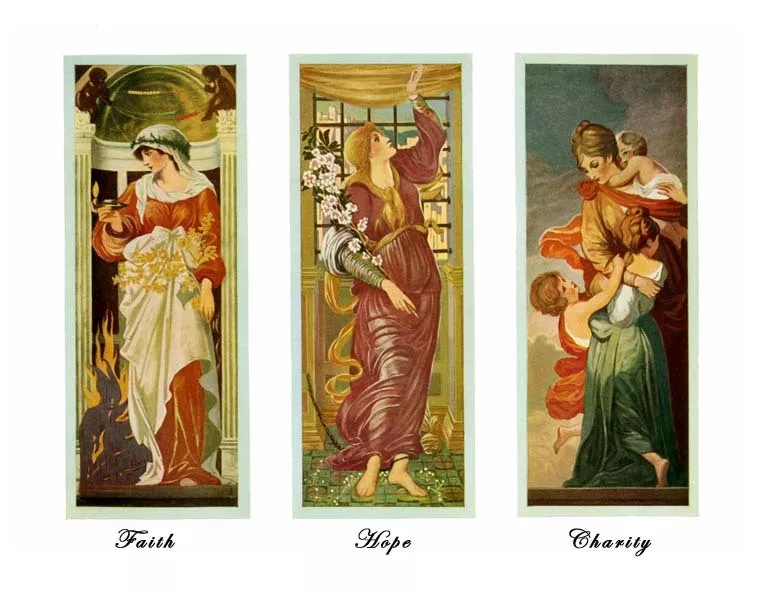
Is Freemasonry a religion?
Religion
Freemasonry is not a religion, nor is it a substitute for a religion. It is open to men of many different religions, and it expects them to continue to follow their own faith. Religion, just as politics, is not allowed to be discussed at the Lodge.
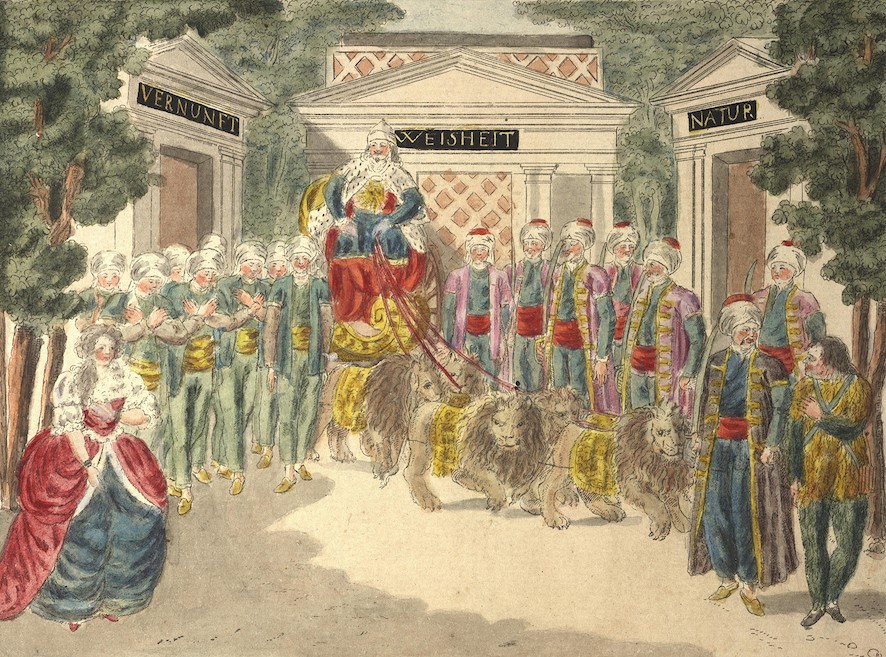
Is Freemasonry a secret society?
Secrecy
No. The only secrets in Freemasonry are those concerned with its rituals. Members are free to acknowledge their own membership and will do so in response to inquiries for legal reasons. Freemasonry’s aims and principles are not secret, however, like many other clubs and societies, it does consider some of its internal affairs as private matters for its members.
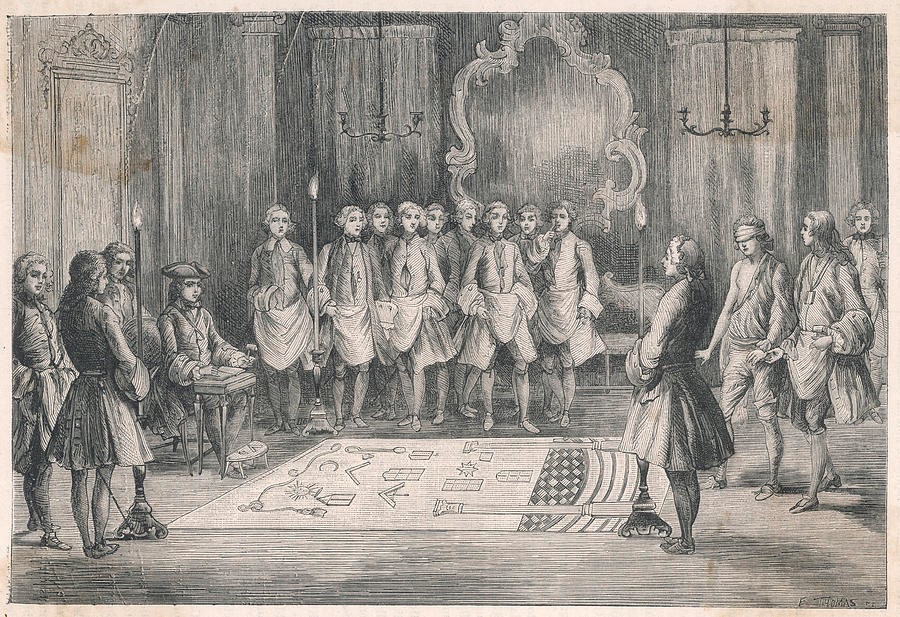
Membership
Freemasonry hopes to provide its members with a moral and ethical approach to life. Its values are integrity, kindness, honesty, and fairness. Together we help raise money for charities. We meet formally and socially, making new friends and learning new life skills. Public speaking, for example within the Lodge, is encouraged, to help develop confidence and presentation abilities, and as Freemasons always work as a team, members can further develop their leadership and management skills in the wider world.
Membership is open to men, of good repute, 24 years or older, no criminal record, and a belief in a Supreme Being.
Interested applicants and Brethren from other Lodges can use the Contact page on this website to get in touch with us. The process of joining our Lodge includes a personal interview with you, where you would get the opportunity to ask questions and get a deeper insight into what joining the Lodge would mean for you personally.
Sarastro Lodge welcomes new members, no matter their race, religion, and sexual orientation. Integrity and ethical behaviour in relationships are the important thing. Please contact us if you have questions.
Yes. Women Freemasons have been meeting across the country for decades. Whilst the Grand Lodge of Austria, A.F., and A.M., in keeping with all other Regular Grand Lodges, is restricted to men, there are other Grand Lodges, which are restricted to either women only, or men and women. For example, ‘Le Droit Humain’, the ‘Grand Orient of Austria’ and the ‘Grand Lodge Humanitas Austria’ accept women and men as members. We are happy to put you in contact with them if you wish to know more.
Yes. Freemasonry has members from many different faiths, including Roman Catholicism.
No, leaders and members of different political persuasions have been Freemasons, and we specifically avoid discussing politics in our meetings. In our Lodge we have as many differing political views as we do members. We respect each other’s opinion as we respect our own.
It is not acceptable for Freemasons to give unfair preference to Freemasonry candidates in their job roles in the community.
Conspiracy theorists and those hoping to get rich from doing business with other Freemasons.
Freemasonry exists throughout the world. However, each Grand Lodge is sovereign and independent. There is no international governing body for Freemasonry, although some Grand Lodges carry more prestige and history than others. Within each country (or State in some parts of the world) the Grand Master is sovereign and not answerable to any other body.
Certain (affordable) expenses are associated with membership of a lodge. There are fees for yearly membership. The dress code at a lodge meeting is a dark suit, white shirt, dark tie, and white gloves. If you are not already in possession of such clothing, the cost of this should be considered. Precise costs are communicated upon request.
At every meeting there is collection to the charity fund, everyone decides for himself how much he wants to contribute. A meal is held after the Lodge meeting.
Visiting
As a Freemason
Freemasons from constitutions recognised by the Grand Lodge of Austria, A.F. and A.M. are welcome to attend our meetings. All visitors are requested to contact us first and present an up-to-date Letter of Good Standing/Clearance Certificate/Dues Card from their Lodge.
Meetings are held twice a month, from September to June. The Lodge building is situated in the centre of Vienna, close to Stephansplatz U-Bahn station, served by both the U3 and U1 lines, and 30 minutes by train from Vienna International Airport.
Please use our contact page to get in touch with our Lodge Secretary.
As a member of the public
Unfortunately, the Lodge building is not open to the public. However, we do recommend a visit to the Masonic Museum in Schloss Rosenau, Lower Austria. There, one can find various exhibits on the history of Freemasonry in Austria, stretching back to the 18th century.
Masonic Links
Freemasonry is the oldest and most widely known of the world’s important fraternal organisations. Its high ethical and moral standards and values support its claim to be an organisation of excellence which counts for something in today’s society. Freemasonry is a way of life; it is more than just another friendly society or social club. It is an organisation formed, to join together in friendship, men of integrity and good will from all walks of life. It sets high standards of behaviour to be maintained in daily life, so providing an example to the community. The sustained practice of Freemasonry provides significant and rewarding opportunities for self-development and community service.
Freemasons are men of character and substance with high ideals and worthwhile values who can make a difference in the community. In short they are citizens of quality and good reputation who have taken up Freemasonry because they believe that what they do in their Lodges improves their character and enhances their value to their fellows.
Suggested Websites
- The Grand Lodge of Austria, A.F. and A.M.: https://freimaurerei.at/
- Rosenau Castle Masonic Museum (Austria): https://www.freimaurermuseum.at/
- Mark Masons Hall (England): https://www.markmasonshall.org/
- The United Grand Lodge of England (U.G.L.E.): https://www.ugle.org.uk/
Suggested Videos
- Official YouTube channel of U.G.L.E: https://www.youtube.com/@UnitedGrandLodgeofEngland/featured
- What is Freemasonry? (United Grand Lodge of England): https://youtu.be/WAcj4WVLxt0
- Masons of California: https://youtu.be/neiVoSG6nck
- Freemasons South Australia and the Northern Territory: https://youtu.be/wWv_q9fTLe4
- What is Freemasonry? A simple charge to the Fraternity: https://youtu.be/xRP8CbhbW4c
Beyond the Craft: Mark Master Masons
After the three degrees of Craft Freemasonry, many brethren look to “make a daily advancement in masonic knowledge” as instructed in the Charge after Initiation. Degrees and Orders ‘Beyond the Craft’ build on the Masonic story.
The Degree of a Mark Master Mason, considered by many to be the completion of the Second or Fellow Craft’s Degree, is open to all Master Masons of at least four weeks standing.
The ‘Mark’ portion of the title of the degree takes its name from the practice of the stonemason appending his unique mark on his work to identify it, either for the purpose of subsequent payment or simply for posterity or as a matter of pride in his work, a practice which has existed from time immemorial; cathedrals and other prominent buildings all over the world carry the marks of the men who built them which can still be seen quite clearly on masonry which is over a thousand years old.
Saint Margaret’s Lodge of M.M.M. No.1954 is under ‘The Grand Lodge of Mark Master Masons of England and Wales and its Districts and Lodges Overseas.’ It meets in Vienna, or any other venue in Austria, on the second Saturday of March and June and the third Saturday of November (Installation).
Visitors from constitutions recognised by the ‘Grand Lodge of Mark Master Masons of England and Wales and its Districts and Lodges Overseas’ can contact the Saint Margaret’s Lodge Secretary at: secretary.sml1954@gmail.com
Not yet a Mark Master Mason? Feel free to contact the Secretary at the above address, or via the contacts page for more details on how to join.
Contact Us
This website alone is unlikely to give you all the information you need, so if you are interested in becoming a member of our Lodge or wish just to ask a few questions about Sarastro Lodge in particular, then please contact us via our email address: secretary@sarastrolodge.at or by simply filling in the contact form.
If you submit this form we may store and use the personal data you provide in order to respond to your query, check any information you have provided and improve the quality of the services it offers.
Fill out the form below and we will contact you as soon as possible!
